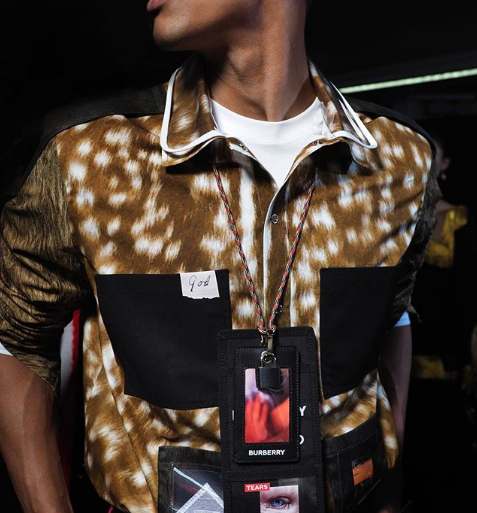On September 17, Burberry, the British brand known for their plaid print, debuted their spring/summer 2019 collection under designer Riccardo Tisci at London Fashion Week. The models strutted down the runway in an assortment of trench coats, suit separates and pleated skirts, but there was one thing missing — fur. Although one might not expect to see fur in a spring/summer collection, the brand is using this collection as an official statement, saying that they will no longer use real animal fur. In addition to their greener approach, Burberry has also promised to stop burning merchandise that they didn’t sell in response to the angry outcry from the press and social media using the hashtag #burnberry.
In an annual report released in June, the company revealed that last year they “physically destroyed” $37.8 million worth of finished goods ranging anywhere from clothing to beauty products. Of course it is not uncommon for luxury brands to get rid of unsold product to keep their brand desirable, but the sheer amount of wastefulness caused an uproar and even caught the attention of the giant online secondhand store ThredUP. The company also took to Instagram to share an open letter inviting Burberry to,”send any unsold Burberry product to ThredUP for resale back into the circular economy.” The company even promised, “we’ll donate 100 percent of the proceeds to the environmental charity of your choice.”
Fashion is a $3 trillion global industry, and is unfortunately responsible for 10 percent of global carbon emissions, second only to the oil industry. As the public grows to be more environmentally conscious, Burberry realizes firsthand that, “now customers are not happy if you don’t care about the environment they live in,” said Burberry CEO Marco Gobbetti in an interview.
In an additional attempt to repair their image, Burberry has also officially phased out animal fur — the spring/summer 2019 collection being the first one they have made a statement about. Burberry has joined other major fashion brands such as Gucci, Michael Kors and Versace — all who have said they are no longer using fur in their collections. The British powerhouse picked a particularly convenient time to stop their use of fur, as the British parliament debated a UK-wide fur trade ban.
It was the outcry from the public that caused Burberry to end their wasteful ways. Customers are no longer willing to shell out the money for a name brand if that brand is unethical. Doing good is what is really fashionable.





